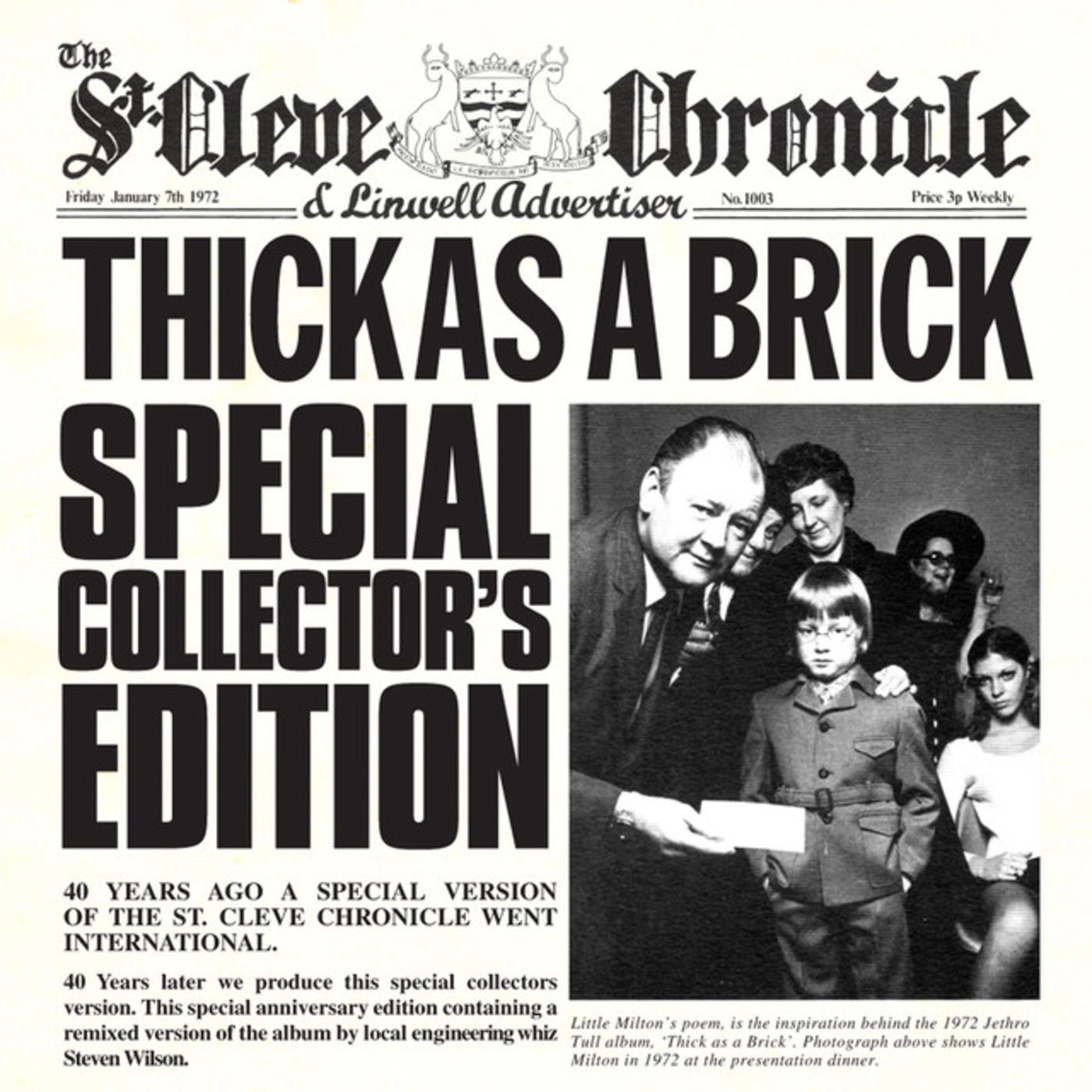Now Available: Jethro Tull, Original Album Series

Fans of the Original Album Series box sets, rejoice: we bring unto you our latest effort, this time spotlighting five albums from the late ’70s / early ‘80s period of Jethro Tull’s discography. You will please note that this spotlight shines strictly upon the band’s studio output, which is to say that you’ll have to look elsewhere if you’re interested in obtaining a copy of their 1978 live album, Bursting Out. You may also wish to recall that there are some critics who would argue that this timeframe will literally provide you with the highest of Tull’s creative highs as well as the lowest of their lows, but, hey, everybody’s got their own opinion. (Personally, we find that there are merits to all of the albums included in the collection...but, of course, that’s just the sort of thing a label would say.)
If you don’t happen to have the Jethro Tull discography memorized, here’s the quintet of albums that you’ll find in this Original Album Series set:
Songs from the Wood: You’re not likely to find many fans or critics who won’t deem this to be the crown jewel of this particular collection. Although strong through and through, the album’s single, “The Whistler,” was a chart hit in the U.S., hitting #56 on the Billboard Hot 100, while the title track, always a fan favorite, found additional life after its inclusion on the band’s 1985 compilation, Original Masters. Frontman Ian Anderson has said that the album was felt by Tull’s full membership to be “a reaffirmation of our Britishness,” and it proved to be the first in what would prove to be a trilogy of folk-rock albums by the band, along with Heavy Horses and Stormwatch.
Heavy Horses: Another effort which was well-received across the board, Heavy Horses was a bit harder on occasion than its predecessor…or perhaps “more enthusiastic” is a better descriptor. Either way, it’s a strong album full of lovely melodies, but it proved to be the final Tull recording featuring John Glascock on all tracks, which – given that Ritchie Blackmore once called him the best bassist in the business – proved disappointing for all parties concerned.
Stormwatch: Given that Glascock was suffering from a cardiac infection while contributing to this album, an infection to which he would soon succumb, it’s no wonder that Stormwatch proved to be arguably less effective than the first two albums in the trilogy, but tracks like “Dark Ages” and “Warm Sporran” continue to have their fans, as does the album’s closer, “Elegy.”
A: Let us first begin with the acknowledgment that this was originally intended to be an Ian Anderson solo album and only saw release under the Tull moniker by request of the band’s label. Once you know that, then consider the sound of Anderson’s solo album, Walk Into Light, and you’ll appreciate better understand why A is so synth-heavy. That’s not to say that there isn’t still a bit of folking out – witness “The Pine Marten’s Jig,” for instance – but if you don’t think it sounds a heck of a lot like Tull overall…well, you’re right. But at least now you know the reason for it.
The Broadsword and the Beast: Probably the album in this set with the most divergent opinions between critics and fans, this somewhat conceptual effort features some of Anderson’s favorite music by the band, and there’s semi-solid ground to stand on if you feel that it provides the most successful middle ground between the folk of the band’s late ‘70s work and the more contemporary instrumentation found on A. You might love it or it might make you cringe, but you can’t say that Jethro Tull didn’t try to evolve with the times.


